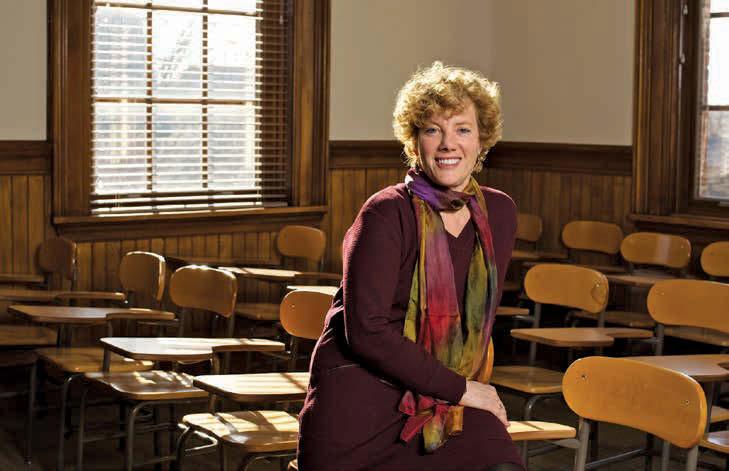
2 minute read
Helping Children by Helping Families
Marsha Kline Pruett, M.S.L., Ph.D., ABPP, associate dean of academic affairs and Maconda Brown O’Connor Professor, believes the most effective way to support children is to strengthen the family constellations around them. That is the underlying motivation for all of her current research projects.

“My ultimate goal is to improve the world for children by promoting their well-being,” said Kline Pruett. “I’m interested in the ways in which families and the organizations they are involved in function well—or don’t.” Kline Pruett is involved in at least four research projects focused on that topic with colleagues both on and off campus.
Working with a team, she is analyzing data collected since 2004 for the Supporting Father Involvement program, an evidence-based intervention that aims to reduce child abuse and family violence.
With qualitative and quantitative data and video recordings from over 1,500 families, there are many different directional deep dives the research can take. The program has been launched with groups of men in homeless shelters, among prison populations and is in use in California and Massachusetts, as well as other countries, including Malta, England and Canada.
“Our goal is to train people to implement it in a variety of contexts and have them take it as their own and shape it,” Kline Pruett said. The program can be adapted to be sensitive and responsive to a local community’s culture and needs, and, by maintaining fidelity to certain parameters, also remain evidence-based.
With a background in family law and policy, another project has Kline Pruett consulting with and evaluating
the Family Resolutions Specialty Court in Northampton. The alternative dispute resolution program draws in probate judges, lawyers, mediators and family consultants to work collaboratively to settle family court issues in non-adversarial ways at virtually no cost to families.
That effort is heavily modeled after a program Kline Pruett and other team members helped create in Colorado, and though not strictly evidence-based, it is evidence-informed.
Meanwhile, another project she has her hand in involves evaluation of the online parenting tool Our Family Wizard (OFW), in use by several hundred thousand families around North America.
OFW is a parenting app that serves as a tool to support communication and cooperation among high-conflict separated or divorced families.
The app helps co-parents communicate more effectively, leading to conflict reductions by tracking schedules, even triggering warnings when emails
—MARSHA KLINE PRUETT
contain certain words or phrases that might provoke or exacerbate disagreement between co-parents. Kline Pruett believes this type of tool has the potential to be a cutting-edge resource in the world of family law.
Kline Pruett and SSW Assistant Professor Benjamin Capistrant, Sc.D., are evaluating how the tool works and its success by looking at data from 5,500 families.
“All of my work has to have a pragmatic significance in the real world,” she said. “I’m not interested in doing research that nobody reads or uses.”
—Laurie Loisel








